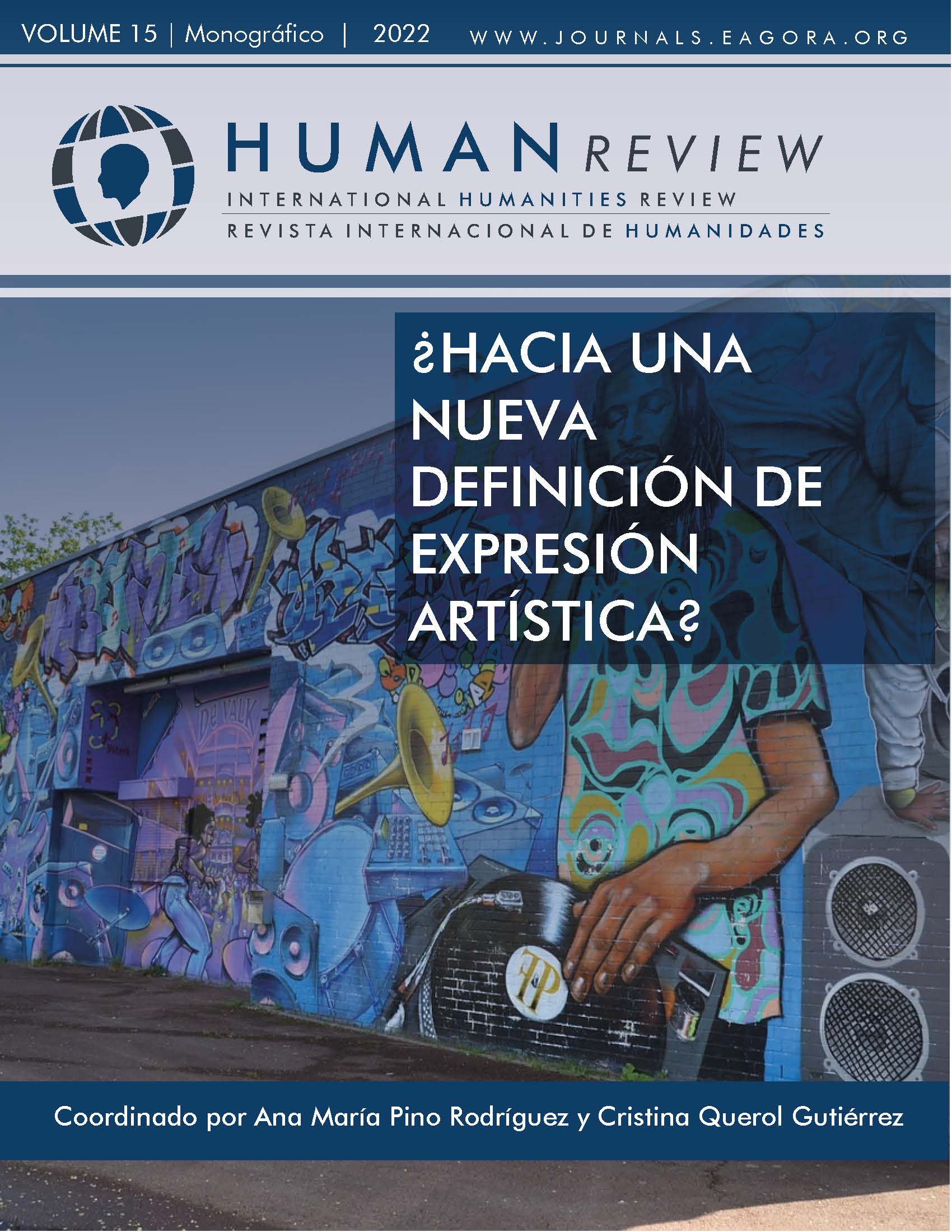The botanical image in the post-photographic era
How to face the biodiversity crisis? How can art contribute?
DOI:
https://doi.org/10.37467/revhuman.v11.4332Keywords:
Generative art, Cameraless photography, Generative Adversarial Networks (GAN), Protophotography, Postphotography, BiodiversityAbstract
This article is a review of the ability of photographic herbariums to establish experimental alliances with potential to help raise awareness and resolve the plant biodiversity crisis. It analyzes how the photographic medium, under the prism of artistic creation, can be erected as a revealing system, able to overcome the mere description and expand the cognitive limitations of our visual perception, revealing the complexity of the botanical universe through a deeper and poetic look at its physical nature.
References
Batchen, G. (2004). Arder en deseos. La concepción de la fotografía. Ed. Gustavo Gili.
Batchen, G., & Talbot, W. H. F. (2008). William Henry Fox Talbot. Amsterdam University Press.
Castelo, L., & Legido, T. (2020). Herbarios imaginados. Entre el arte y la ciencia. Ediciones Complutense.
Deleuze, G., & Guattari, F. (1992). Rizoma (Introducción). Pre-textos.
Foucault, M. (2007). Las palabras y las cosas. Una arqueología de las ciencias humanas. Siglo XXI Editores.
Gómez-Bellver, C., Ibañez, N., López-Pujol, J., Nualart, N., & Susanna, A. (2019). Las fotografías como complemento de los Especímenes: Implementación de photo voucher y fusion voucher, en el herbario BC. Libro de resúmenes de la XXIII bienal de la rsehn- barcelona.
Goodfellow, I., Pouget-Abadie, J., Mirza, M., Xu, B., Warder-Farley, D., Ozair, S.; Courville, A., & Bengio, Y. (2014). Generative Adversarial Nets. Adv. Neural Inf. Process. Syst. 2, 2672–2680.
Hong, Y., Hwang, U., Yoo, J., & Yoon, S. (2019). How generative adversarial networks and their variants work: An overview. ACM Comput. Surv. 52, 1–43.
Karras, T., Laine, S., & Aila, T. A (2019). Style-Based Generator Architecture for Generative Adversarial Networks. In Proceedings of the 2019 IEEE/CVF Conference on Computer Vision and Pattern Recognition (CVPR), Long Beach, CA, USA, 15–20 June 2019; pp. 4396–4405. [Google Scholar]
Karras, T., Laine, S., Aittala, M., Hellsten, J., Lehtinen, J., & Aila, T. (2020). Analyzing and improving the image quality of StyleGAN. In Proceedings of the 2020 IEEE/CVF Conference on Computer Vision and Pattern Recognition (CVPR), Seattle, WA, USA, 13–19 June 2020; pp. 8107–8116. [Google Scholar]
Radford, A., Metz, L., & Chintala, S. (2016). Unsupervised Representation Learning with Deep Convolutional Generative Adversarial Networks. https://arxiv.org/pdf/1511.06434.pdf .
Redondo M. & Figueras, E. (2021). Herbart. Confluències entre art i ciència. Edicions de la Universitat de Barcelona.
Riego, B. (1996). La nueva memoria: La fotografía frente a la descripción dibujada o la paradoja de Turpin. Papel Alpha, 2, 135-153.
Thompson, D.W. (1917). On Growth and Form. Cambridge University Press.
Downloads
Published
How to Cite
Issue
Section
License
Those authors who publish in this journal accept the following terms:
- Authors will keep the moral right of the work and they will transfer the commercial rights.
- After 1 year from publication, the work shall thereafter be open access online on our website, but will retain copyright.
- In the event that the authors wish to assign an Creative Commons (CC) license, they may request it by writing to publishing@eagora.org









